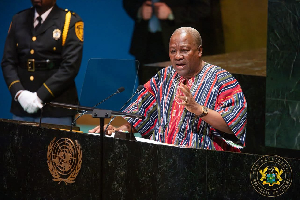Anti-graft campaigner Vitus Azeem has called for the inclusion of anti-corruption subjects in the country’s school curricula following a suggestion by the Institute of Economic Affairs (IEA) that graft should be fought through a moral revolution.
Results from a recent IEA study on corruption have revealed that Ghanaians regard low salaries as the third leading factor for corruption. Greed, selfishness and the quest to get quick riches were the other top factors.
A former chair of the Commission on Human Rights and Administrative Justice (CHRAJ), Justice Emile Short, who spoke to Class News on the sidelines of a discussion on the survey on Tuesday August 2, said instilling moral values in the youth was a collective responsibility.
“First of all, it should start with the family. Parents and guardians have a responsibility, the schools have a responsibility, the [National] Commission for Civic Education also has a responsibility, CHRAJ has a responsibility, so various institutions have a responsibility in trying to instil values of honesty and integrity into the youth. So, it’s not just one person or institution, but several institutions have a responsibility in this area,” he stated
Speaking to Class News subsequently, Mr Azeem suggested that schools should be made to add anti-corruption topics and subjects to their curricula so as to imbibe the spirit of stewardship and integrity in the youth.
“People say the adults are already corrupt, you can’t do much about them but what about the young ones that are coming up? Can we include anti-corruption in the agenda? I don’t think there is any university in this country that has anti-corruption as one of the programmes.
Even though they have governance, we do not concentrate a lot on it in our educational sector, so it’s not the only one, we are talking about institutions. You need to strengthen the institutions and when we say strengthen, it’s not just giving them resources but appointing people with integrity to help those institutions and to lead those institutions.”
General News of Wednesday, 3 August 2016
Source: classfmonline.com
Include anti-graft topics in curricula - Azeem
Entertainment












